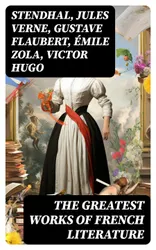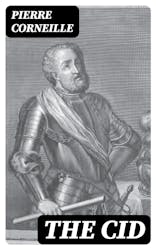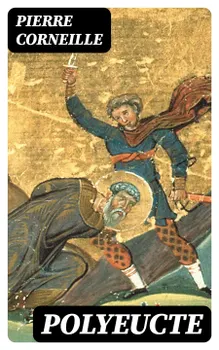In Pierre Corneille's gripping tragedy, "Polyeucte," the playwright explores themes of faith, sacrifice, and the struggle between personal conviction and societal pressures. Set against the backdrop of Roman-occupied Armenia, the narrative follows the titular character, Polyeucte, who embraces martyrdom to express his unwavering belief in Christianity. Corneille's use of elevated language and dramatic monologues enhances the emotional intensity, allowing readers to delve into the moral dilemmas faced by the characters. The play, emerging from the early 17th-century French classical tradition, challenges the conventions of heroic tragedy by intertwining personal agency with divine purpose, making it a pivotal work in the development of French drama. Pierre Corneille (1606-1684) stands as one of the foremost figures in French literature, often deemed the father of French tragedy. His innovative treatment of themes concerning honor, duty, and individualism reflects his own experiences in a time of political unrest and cultural upheaval. "Polyeucte," written in 1640, showcases Corneille's philosophical engagement with ethical quandaries, which was influenced by his own Catholic faith and the tensions between religious fervor and reason during the Enlightenment. "Polyeucte" deserves recognition for its profound exploration of spiritual courage and the human condition. Readers seeking a compelling blend of philosophical inquiry and dramatic narrative will find this play both challenging and rewarding. Corneille's masterful construction of character and dialogue invites thoughtful reflection, making it a must-read for those interested in the evolution of tragedy and the exploration of faith's complexities.
Polyeucte
Kom i gang med denne bog i dag for 0 kr.
- Få fuld adgang til alle bøger i appen i prøveperioden
- Ingen forpligtelser, opsiges når som helst
Forfatter:
Sprog:
engelsk
Format:

10 œuvres du bac français 2026
Étienne de La Boétie, Pierre Corneille, Abbé Prévost
book
Le menteur
Pierre Corneille
book
Pierre Corneille: Oeuvres complètes
Pierre Corneille
book
French Literature Classics - Ultimate Collection: 90+ Novels, Stories, Poems, Plays & Philosophy : Enriched edition. Exploring the Depths of French Literary Classics
Stendhal, Jules Verne, Gustave Flaubert, Émile Zola, Victor Hugo, Guy De Maupassant, Jean-Jacques Rousseau, François Rabelais, George Sand, Marcel Proust, Gaston Leroux, Charles Baudelaire, Molière, Pierre Corneille, Jean Racine, Voltaire, Pierre Choderlos de Laclos, Alexandre Dumas pere, Alexandre Dumas fils
book
The Greatest Works of French Literature : Enriched edition. 90+ Novels, Short Stories, Poems, Plays, Philosophical Essays…
Stendhal, Jules Verne, Gustave Flaubert, Émile Zola, Victor Hugo, Guy De Maupassant, Jean-Jacques Rousseau, François Rabelais, George Sand, Marcel Proust, Gaston Leroux, Charles Baudelaire, Molière, Pierre Corneille, Jean Racine, Voltaire, Pierre Choderlos de Laclos, Alexandre Dumas pere, Alexandre Dumas fils
book
French Literature Classics - Ultimate Collection: 90+ Novels, Stories, Poems, Plays & Philosophy
Stendhal, Jules Verne, Gustave Flaubert, Émile Zola, Victor Hugo, Guy De Maupassant, Jean-Jacques Rousseau, François Rabelais, George Sand, Marcel Proust, Gaston Leroux, Charles Baudelaire, Molière, Pierre Corneille, Jean Racine, Voltaire, Pierre Choderlos Laclos, Alexandre Dumas pere, fils
book
Pierre Corneille: Oeuvres complètes : Passion, honneur et pouvoir : Le théâtre classique de Corneille
Pierre Corneille
book
French Literature Classics - Ultimate Collection: 90+ Novels, Stories, Poems, Plays & Philosophy
Stendhal, Jules Verne, Gustave Flaubert, Émile Zola, Victor Hugo, Guy De Maupassant, Jean-Jacques Rousseau, François Rabelais, George Sand, Marcel Proust, Gaston Leroux, Charles Baudelaire, Molière, Pierre Corneille, Jean Racine, Voltaire, Pierre Choderlos de Laclos, Alexandre Dumas pere, Alexandre Dumas fils
book
The Greatest Works of French Literature : 90+ Novels, Short Stories, Poems, Plays, Philosophical Essays…
Stendhal, Jules Verne, Gustave Flaubert, Émile Zola, Victor Hugo, Guy De Maupassant, Jean-Jacques Rousseau, François Rabelais, George Sand, Marcel Proust, Gaston Leroux, Charles Baudelaire, Molière, Pierre Corneille, Jean Racine, Voltaire, Pierre Choderlos de Laclos, Alexandre Dumas pere, Alexandre Dumas fils
book
Le Cid
Pierre Corneille
book
The Cid
Pierre Corneille
book
